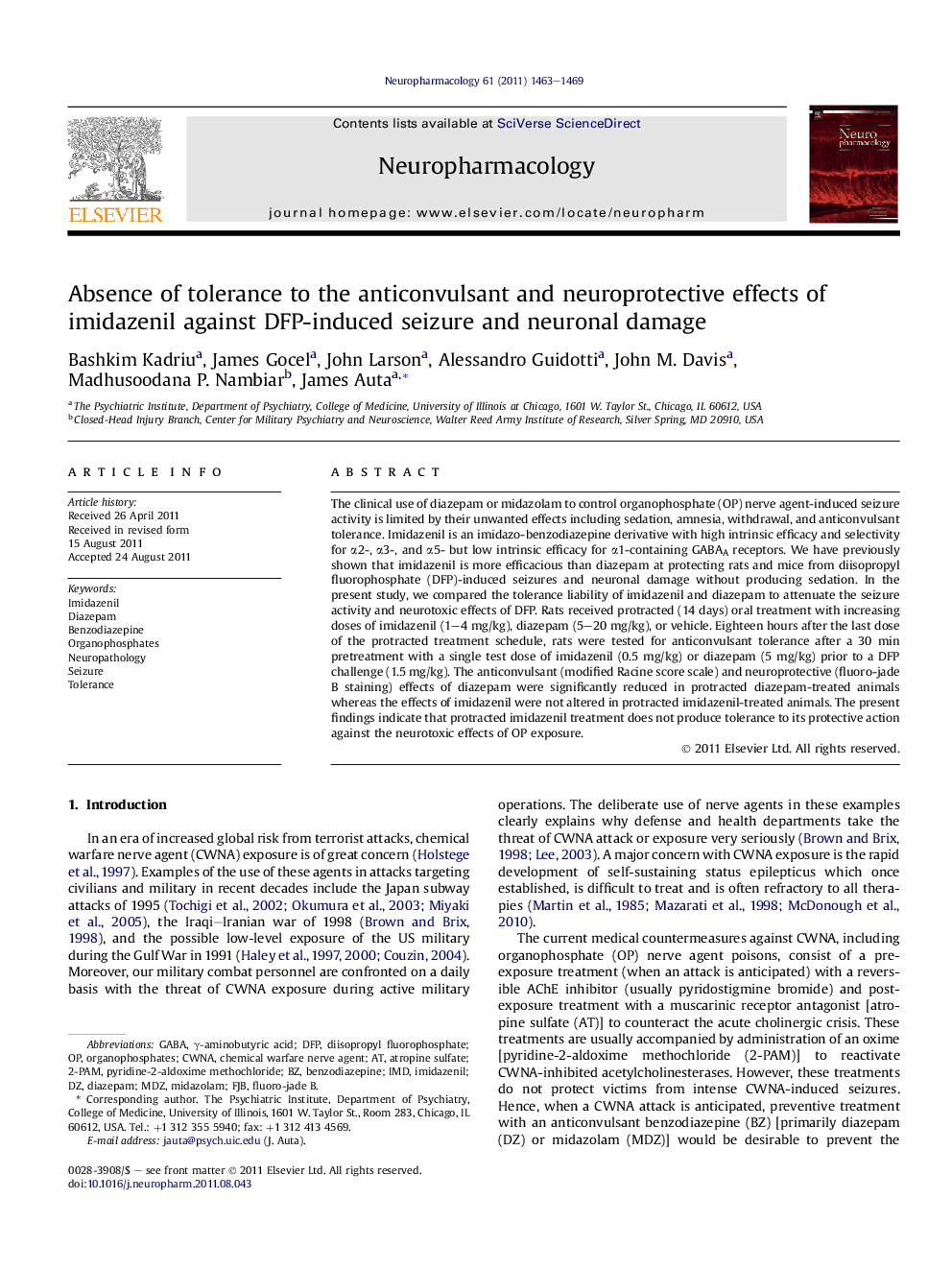| Article ID | Journal | Published Year | Pages | File Type |
|---|---|---|---|---|
| 5815754 | Neuropharmacology | 2011 | 7 Pages |
The clinical use of diazepam or midazolam to control organophosphate (OP) nerve agent-induced seizure activity is limited by their unwanted effects including sedation, amnesia, withdrawal, and anticonvulsant tolerance. Imidazenil is an imidazo-benzodiazepine derivative with high intrinsic efficacy and selectivity for α2-, α3-, and α5- but low intrinsic efficacy for α1-containing GABAA receptors. We have previously shown that imidazenil is more efficacious than diazepam at protecting rats and mice from diisopropyl fluorophosphate (DFP)-induced seizures and neuronal damage without producing sedation. In the present study, we compared the tolerance liability of imidazenil and diazepam to attenuate the seizure activity and neurotoxic effects of DFP. Rats received protracted (14 days) oral treatment with increasing doses of imidazenil (1-4 mg/kg), diazepam (5-20 mg/kg), or vehicle. Eighteen hours after the last dose of the protracted treatment schedule, rats were tested for anticonvulsant tolerance after a 30 min pretreatment with a single test dose of imidazenil (0.5 mg/kg) or diazepam (5 mg/kg) prior to a DFP challenge (1.5 mg/kg). The anticonvulsant (modified Racine score scale) and neuroprotective (fluoro-jade B staining) effects of diazepam were significantly reduced in protracted diazepam-treated animals whereas the effects of imidazenil were not altered in protracted imidazenil-treated animals. The present findings indicate that protracted imidazenil treatment does not produce tolerance to its protective action against the neurotoxic effects of OP exposure.
⺠Imidazenil is more efficacious and longer-lasting than diazepam against DFP-induced seizures and neuronal damage. ⺠Imidazenil protracted treatment does not elicit anticonvulsant tolerance. ⺠Diazepam protracted treatment elicits anticonvulsant tolerance.
